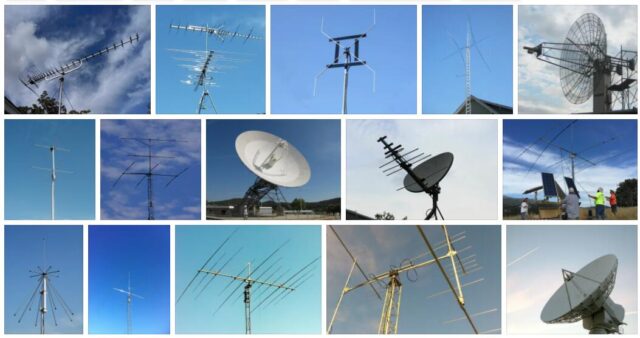The term antenna comes from antenna, a word from the Latin language that in turn came from Greek. In those origins the word in question was used with two different meanings: to refer to what the mast that held the sails of the ships was and also to make mention, as Aristotle put it, to the antennas that the insects had.
The concept of antenna can refer to the device that, installed in a machine, allows capturing or emitting electromagnetic radiation.
An antenna can convert electromagnetic waves into electrical energy and thus act as a receiver. You can also do the reverse process: convert electricity to electromagnetic waves and function as a transmitter.
According to its dimensions and other characteristics, the antennas can receive and transmit signals with different length wave. The physical location of the antennas also affects their operation.
The TV antennas, for example, can capture television signals transmitted on frequencies between 470 and 960 MHz in the band is known as UHF and between 41 and 250 MHz VHF. In this way, the television can receive air signals thanks to its antenna.
The mobile (cellular) and stations Radio also require antennas for transmitting signals. In each case, the properties of the devices will be different.
In addition to what has been indicated, we cannot overlook the fact that the word in question is also used very frequently in the world of journalism and the media in general. Thus, for example, we came across Antena 3, which is one of the longest-running private television channels in Spain.
It is operated by Atresmedia Televisión, began broadcasting in January 1990 and has its central studios in the town of San Sebastián de los Reyes. It has achieved great relevance over the years thanks, among other things, to series such as “On-call pharmacy”, “The house of trouble”, “Companions”, “A step forward”, “Paco’s men”, “The boarding school” or “Plastic sea”.
It should not be forgotten either that there are some important awards at the communication level in Spain that respond to the name of the golden antenna. They are delivered annually, since 1962, by the Federation of Radio and Television Associations of Spain. Among the most relevant winners are from Pepa Bueno to Rosa María Mateo, including Mario Camus, Bobby Deglané, Félix Rodríguez de la Fuente and Carles Francino.
The idea of antenna also appears in the field of zoology. Certain arthropods have appendages divided into segments that are called antennas, which are located on the head and have sensory units that allow them to record temperature, capture odors and perceive flavors, among other issues.
The butterflies and beetles males, to cite one case, they use their antennae to the perception of sex pheromones secreted by females. Thus, antennas are key to the reproduction of the species.
